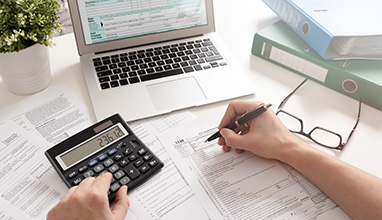When you are applying for a position as a dispatcher, your potential employer will need to gauge your ability to stay calm during an emergency and communicate instructions via the telephone. The following dispatcher interview questions and answers are those most commonly asked and the ones you should be prepared to answer.
Why Do You Want to Be a Dispatcher?
A dispatcher’s job is a difficult one. It can be heart-wrenching and incredibly stressful, and your interviewer knows that it is not a job that just anyone can handle. You should be honest when answering this question, but you should never say that you need the paycheck. For instance, “When I had to dial 911 because my father was having a heart attack, the dispatcher kept me calm and instructed me on how to perform CPR. I feel this instruction saved my father’s life, and I would like the opportunity to help others in the same way” would be an exceptional answer. You should be sure to tailor your answer to your own personal experiences or desires, however.
What Type of Work Environment Do You Prefer?
Although this question may seem simple to answer, it tells your interviewer a lot about your ability to lead or work with others. It may be tempting to provide an answer that would lead your potential employer to believe that you are a natural leader and a team player, but the correct answer is “I am comfortable working within groups as well as on my own. Although I am well-versed when it comes to leading a team, I am just as capable of following any instructions that are provided to me.” This ensures your interviewer that you can work well in a wide variety of environments, but it also provides information about your preferences.
How Well Do You Handle Stress?
There is no denying that a dispatcher’s job is a stressful one. Not only will you be responsible for ensuring that the correct agencies—police, fire, ambulance, first responders and others—are contacted and directed to the right address, but you will also be responsible for keeping the caller calm and providing instructions as necessary. You should be sure to provide an answer that details your methods for handling stress. “During my downtime, I meditate and do yoga to relieve stress. This way, I arrive for work feeling refreshed and ready to handle any situation that comes my way” is a great answer, as is “I practice deep breathing between calls to clear my head and prepare for the next call.”
Why Are You the Most Qualified Candidate for the Job?
When you are asked about your qualifications, you should be sure to answer with a mix of your experience, education and personal qualities. As an example, saying something like “I am dedicated to helping individuals who are experiencing crises, so I studied emergency management at XYZ College for two years. I am certified in CPR and AED, and I worked as an EMT while I was attending college so I could become familiar with the requirements of the job. I feel that I would be an asset to the department because I have the ability to stay focused during extremely stressful situations” keeps your answer short, but it also shows your employer that you are well informed and ready to handle the job requirements.
During your interview, you may also be tested on the common dispatch codes that are used among emergency personnel, the proper steps for performing CPR, how to help victims who are choking and much, much more.






